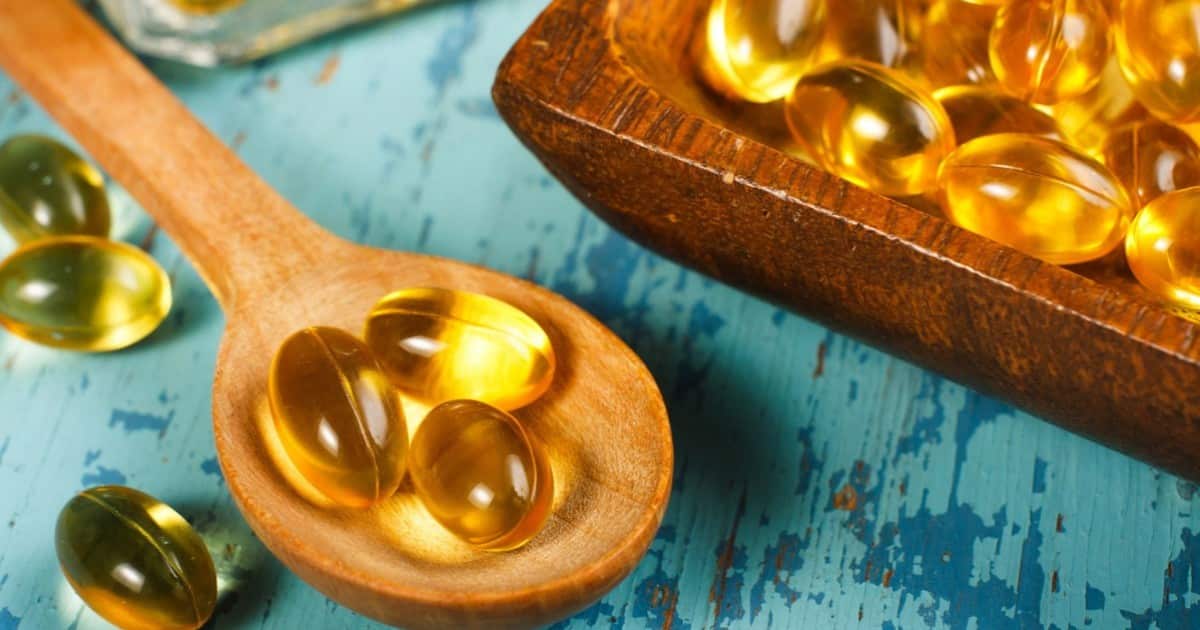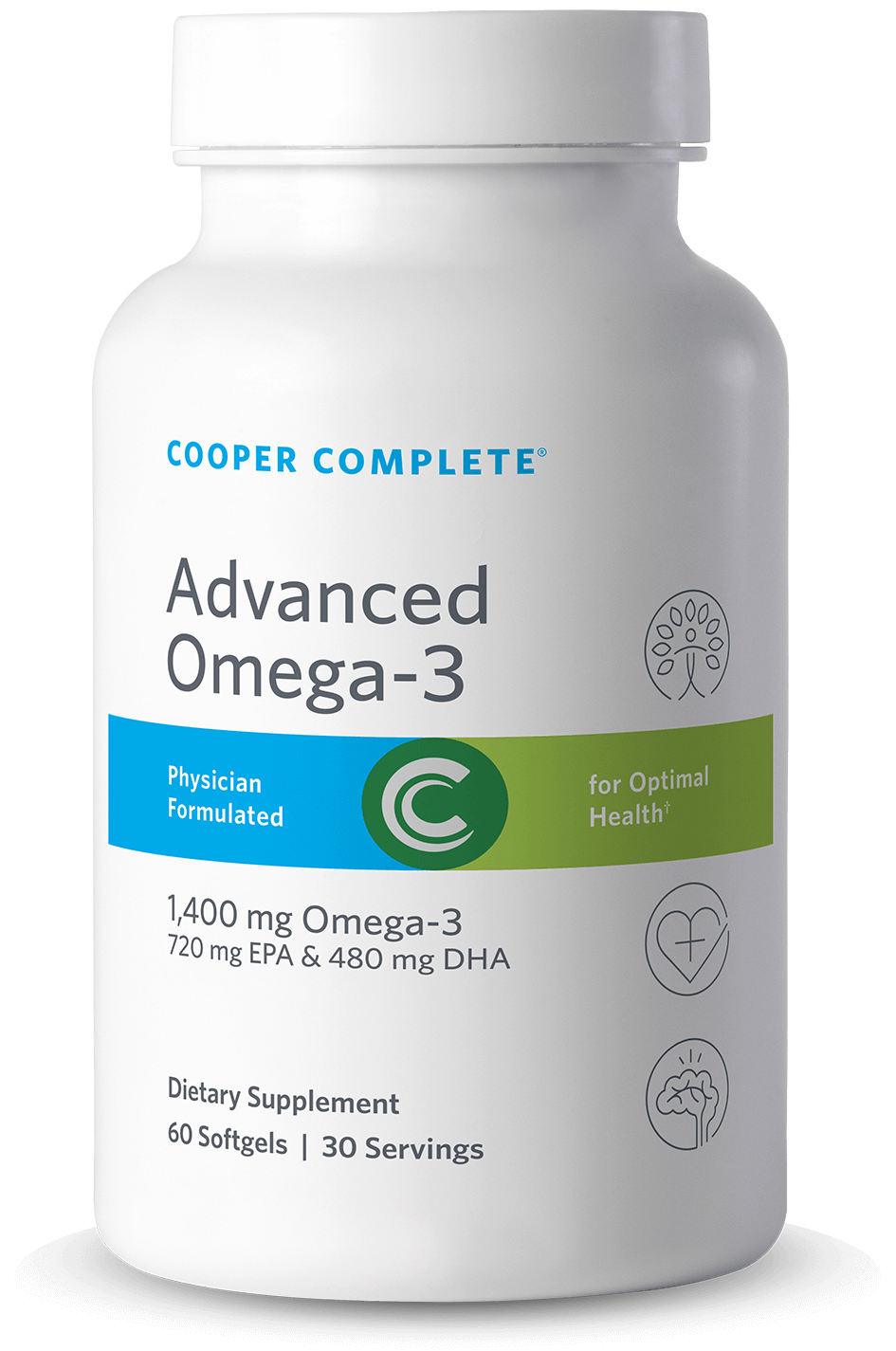How Popular Vayarin Alternatives Compare to Vayarin for ADHD Management

We have received multiple questions about the discontinued products Vayarin® and Vayarin Plus®, prescription medical foods for children with Attention Deficit Hyperactivity Disorder (ADHD), and how they compare to popular and affordable alternatives like over-the-counter supplements, such as our Cooper Complete® Advanced Omega-3.
Product brochures for both discontinued products claim they “have been clinically shown to help reduce ADHD symptoms, including restlessness, hyperactivity, impulsivity and inattention. In a study with parents and teachers of ADHD children, Vayarin has also been shown to improve quality of life.” Vayarin was sold for $60 per month and Vayarin Plus retailed at $80 per month for the baseline dosings. So what was in Vayarin and Vayarin Plus for the management of ADHD compared to omega-3 supplements?
Vayarin Prescription Medical Food |
||
|---|---|---|
| Each serving contains Lipirinen® 334 mg | ||
| Ingredients | Per Serving | |
| Eicosapentaenoic acid (EPA) | 43 mg | |
| Docosahexaenoic acid (DHA) | 17 mg | |
| Phosphatidylserine (PS) | 150 mg | |
| Other Ingredients: Phosphatidylserine, Hypromellose, Silicon Dioxide, Rosemary Extract (preservative), Mixed Tocopherols (E306-E309), Ascorbyl Palmitate (E304), Titanium Dioxide (color), Caramel (color). | ||
Cooper Complete Advanced Omega-3 Dietary Supplement |
||
|---|---|---|
| Omega-3 Fish Oil as rTG (re-esterified triglyceride) | ||
| Ingredients | Per Serving | |
| Eicosapentaenoic acid (EPA) | 720 mg | |
| Docosahexaenoic acid (DHA) | 480 mg | |
| Phosphatidylserine (PS) | – | |
| Other Ingredients: Concentrated re-esterified triglyceride (rTG) fish oil (anchovy), capsule shell (gelatin, glycerine, purified water), natural lemon flavor, proprietary antioxidant blend (consisting of natural tocopherols (soy), rosemary extract, and ascorbyl palmitate) | ||
How are Vayarin, Vayarin Plus and Omega-3 Supplements Different?
The composition of Vayarin and Vayarin Plus was actually most comparable to commercially-available krill oils. Typically, they also contain a high concentration of phospholipids and low levels of EPA and DHA. So far, research on the benefits of omega-3 fatty acids and ADHD is still lacking a conclusion. Most positive research finding modest improvement in hyperactivity and inattentiveness symptoms. Omega-3 fatty acids are not a replacement for standard medical treatment.
Vayarin vs Vayarin Plus: What is the difference?
Both Vayarin and Vayarin Plus contained different amounts of Lipirinen®. Lipirinen is a custom blend of krill oil containing 75 mg of Phosphatidylserine (PS), 21.5 mg of Eicosapentaenoic acid (EPA) and 8.5 mg of Docosahexaenoic acid (DHA). Specifically, the only difference between the two products is how much Lipirinen is in each capsule. A serving of Vayarin contains 334 mg of Lipirinen. Compared to a serving of Vayarin Plus containing 448 mg of Lipirinen.
However, since omega-3 fatty acids provide overall health and anti-inflammatory benefits in particular, it makes sense that all children (as well as adults) follow the American Heart Association’s recommendation of eating fish (especially oily fish) at least twice each week.

Advanced Omega-3 Supplement
Advanced Omega 3 Supplement contains 720 mg EPA, 480 mg DHA, and 200 mg other omega-3 fatty acids in each serving of two lemon-flavored softgels. Omega 3 supplementation supports heart health, cognition, immune, and inflammatory health without any fishy aftertaste.†
$22.98 Add to cartIn instances when regular consumption of fish isn’t possible, supplementation of omega-3 fatty acids is a great alternative and far less expensive than Vayarin. To reduce the potential fishy aftertaste in fish oil supplements, choose an omega-3 product that is flavored or deodorized (such as Cooper Complete Advanced Omega-3) and take the fish oil supplements with a meal that includes other fats.
How large is a Cooper Complete Advanced Omega-3 softgel?
Cooper Complete Advanced Omega-3 comes in a soft gelatin size 24 oblong shape. The capsule is approximately one inch long and slightly wider than 1/4 inch. If there is concern about the pill size, call our customer service team at 888-393-2221 or email us at customerservice@coopercomplete.com with your name and address, and we will send you a sample.
What Are Eicosapentaenoic Acid (EPA) and Docosahexaenoic Acid (DHA)?
Eicosapentaenoic acid (EPA) and Docosahexaenoic acid (DHA) are long-chain polyunsaturated omega-3 fatty acids present in marine life. Most often, found in fatty fish such as salmon, anchovy, herring and sardines. Krill contains lower levels of these omega-3 fatty acids than other fatty fish, but krill also includes phospholipids, which are not found in other fatty fish. Cooper Complete Advanced Omega-3 contains 720 mg EPA and 480 mg DHA in each two softgel serving.
What Is Phosphatidylserine (PS)?
The Vayarin website previously said PS-Omega-3 (Lipirinen®) contained phosphatidylserine (PS) and omega-3 in one molecule. A single molecule PS is commonly present in krill, the small shrimp-like crustaceans found in the ocean and consumed by whales.
PS is the major acidic phospholipid in the brain normally present on the inner surface of the cell membrane. It is also present in many over-the-counter supplements with cabbage, soy or krill. Most available research on PS related to its treatment for ADHD is related to funding from Vayarin and its parent company Enzymotec.
Mostly, in open-label trials that involved scientists compensated by these companies in some fashion.
Enzymotec and Vayarin and Vayarin Plus Studies
Placebo Studies
The Vayarin prescription insert specifically referenced the outcome of two Vayarin studies. In one study, 200 ADHD children were randomized into a double-blind, placebo-controlled clinical trial. The trial lasted 15 weeks, and children received either a placebo or four Vayarin capsules each day. The effectiveness of Vayarin and Vayarin Plus uses a measure of rating scales and questionnaires. Mainly, testing included the Connors’ parent (CRS-P), teacher rating scale (CRS-T) and child questionnaire (CHQ). Overall, the study shows a significant reduction of ADHD scores were in the CRS-P (parent) assessment.
Open Label Studies
Another study referenced was a 15-week open-label study with subjects who had completed the initial double-blind, placebo-controlled clinical trial. In this study, all participants took two Vayarin capsules daily (150 mg PS, 43 mg EPA and 17 mg DHA). An issue with an open-label study is the participants, parents and teachers all know they are taking Vayarin.
As all parties want to see improved ADHD management, subjective test results are prone to biases. Results produced in this manner are less reliable as it is harder to dismiss bias.
The study found the children previously on a placebo and now taking Vayarin showed a significant reduction in ADHD scores. This was based on comparing new scores to baseline scores in the CRS-P (parent) and CRS-T (teacher) assessments.
In a study published in Neurology, researchers reviewed the electronic health records of 722 unique patients of Texas Child Neurology and defined “successful treatment” as any patient taking Vayarin for more than three months. Of the 722 patients, fewer than half (300) continued Vayarin for more than three months.
Additionally, approximately 60 percent of those patients reported benefits in Vayarin. Researchers found the slow response time for the medication to “take effect” as a leading cause. Also, cost and objections to the taste of the product were all prominent reasons for therapy failure.
Ultimately, it is important to consult with your physician about your individual needs to find the best product for you.
